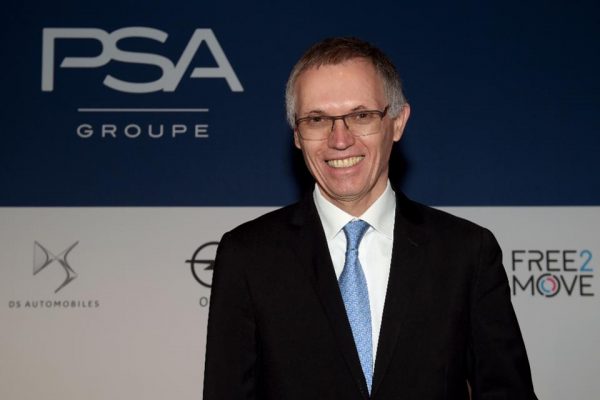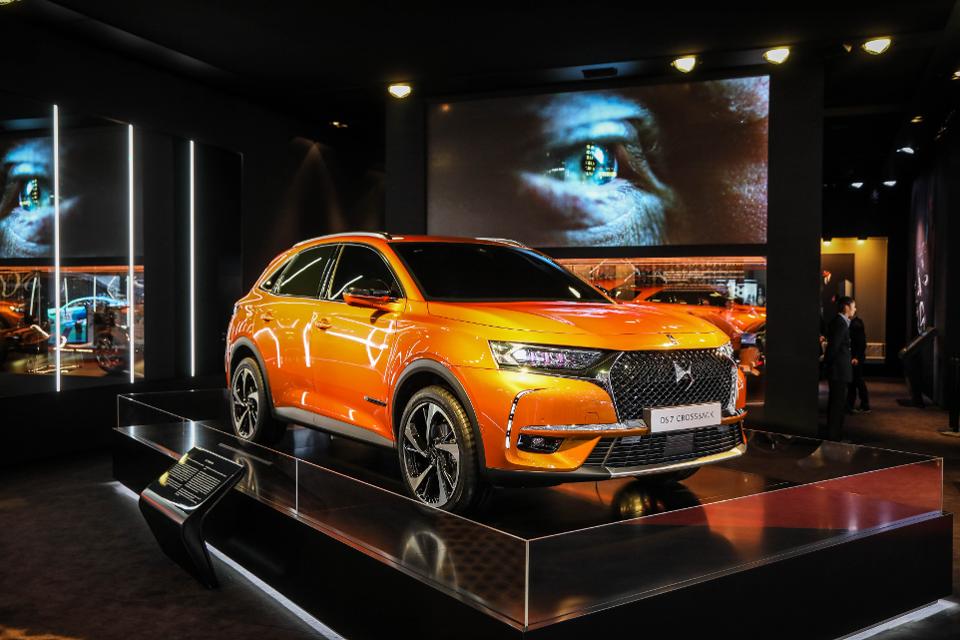New Technology Threat Motivates FCA/PSA Merger; Expect More Global Upheaval – Forbes

CEO of French carmaker PSA Groupe Carlos Tavares (Photo credit should read ERIC PIERMONT/AFP via … [+] Getty Images)
AFP via Getty Images
The merger between Groupe PSA of France and Fiat Chrysler Automobiles (FCA) was driven by the need to meet the existential threat from new technology in the 2020s, and won’t be the last to shakeup the industry.
Renault looks to be the next most exposed global automaker.
Investors welcomed the deal, but they will have to wait a couple of years to see the start of the claimed $4.1 billion annual synergy benefits, as governments make sure the deal doesn’t offend anti-monopoly laws before giving final approval for the tie-up.
The deal is designed to prepare the companies for radical changes as the industry invests heavily in electric and computerized cars. Some experts expect cars and SUVs to gradually become more like cut-priced commodities, rather than stylish, coveted and pricey objects of desire. If transportation just means summoning a vehicle electronically when you need one, rather than actual ownership, the day of the high-priced premium vehicle will be numbered.
This spectre keeps auto shareholders awake at nights.
PSA and FCA employees will have more immediate worries as they question the claim that there will be no plant closures. After all, the main reason for the merger was to eliminate waste and duplication. A claim that the merged companies will positively thrive in the world of electric cars also raised an eyebrow or two.

PSA’s DS7 Crossback (Photo by Gerlach Delissen – Corbis/Corbis via Getty Images)
Corbis via Getty Images
Investors will also wonder about the fate of PSA’s compatriot Renault, which for a while was FCA’s favored merger partner. This deal died after interference by the French state. France has important stakes in both PSA (about 12%) and Renault (15%).
Renault looks to be in an exposed position now in Europe. All its main rivals have found ways to raise scale significantly with mergers or affiliations, with all the advantages that brings for investment, pricing and profit. That makes Renault’s troubled alliance with Nissan even more important.
PSA and FCA will have to sharpen their performance in the world’s largest auto market, China.
FCA’s Fiat subsidiary looks set to be a big beneficiary of the deal. Its models had fallen behind because of lack of investment, and its future had been threatened by a threadbare effort to embrace electric cars.
Before investors get too excited about the merger’s prospects, serious hurdles have to be jumped.
“This is obviously a huge consolidation of the sector that will surely require a considerable effort in securing competition or merger control across a variety of jurisdictions and especially the European Union (EU). This will take time and will create some uncertainty, although the parties will surely have planned this aspect meticulously,” said Jonathan Branton, head of competition at global legal business, DWF.

Maserati GranTurismo Photographer: Chris J. Ratcliffe/Bloomberg
© 2019 Bloomberg Finance LP
The merged company would be the 4th biggest in the world in terms of sales, behind Volkswagen, Toyota, and the Renault-Nissan-Mitsubishi alliance. PSA owns the Peugeot, Citroen, Opel and Vauxhall mass market brands and upmarket wannabe DS. FCA includes Alfa Romeo, Maserati, RAM and Jeep. Combined sales would be 8.7 million vehicles a year generating revenues of nearly $190 billion.
“This (deal) is representative of a general trend towards consolidation and cooperation in the sector as it undergoes the transformation that the changeover to electric vehicles is bringing. This is presenting unique challenges that seem set to make this and other projects which bring previously independent players together, inevitable,” Branton said.
The idea that job losses can be avoided seems far-fetched to Professor Ferdinand Dudenhoeffer, director of Germany’s Center for Automotive Research (CAR).
“(PSA CEO Carlos) Tavares also said at Opel (taken over in 2017 by PSA) that there would be no layoffs. And now there are almost 8,000 fewer people on board and the development center in Rüsselsheim was partially sold. Tavares is very creative when it comes to describing the hard future with nice words. He will surprise us again with very creative solutions, which, according to him, do not mean layoffs, but we are talking about the word,” Dudenhoeffer said.
“I am assuming that a third of the engineers who are in (Fiat, Peugeot, and Opel facilities) Turin, Paris and Rüsselsheim today will not be there tomorrow. And we also assume that 10,000 people will be cut at the plants. The workers and unions are the losers of the merger, the shareholders the winners,” he said.
Fitch Solutions Macro Research said it expects the merger to create a strong and highly competitive automotive company, but with some financial challenges to meet.
“While the two companies pledged to operate without any plant closures, we expect to see some cost-cutting measures as the automakers seek to improve their margins. We note that PSA’s operating margin stood at 8.7% in the first half of 2019 (latest available, French companies report profits only half yearly) but FCA’ s operating margin fell to 5.8% in the first nine months of 2019, down from 6.1% in the corresponding period of 2018,” Fitch Solutions said in a report.
“This highlights the weaker position of FCA and hence we expect it to benefit from the merger as the new company will share operating and production expenses,” Fitch Solutions said.
Fitch Solutions said, longer term, the merger will lead to improving operating margins as about 70% of models will share basic engineering. It pointed to the success of Tavares, who will head the newly merged company, in turning former General Motors subsidiaries Opel-Vauxhall from a serial loss-maker – $20 billion in the first 17 years of this century – into a profit-maker. Fiat will be a big beneficiary of the shared engineering.
German investment bank Norddeutsche Landesbank Girozentrale liked the idea of the merger, but doubted the attainability of the $4.1 annual synergies, or that it was possible to avoid plant closures. More big mergers are likely.
“Basically, a merger of FCA and PSA makes perfect sense. But it can be doubted that whether synergies of ($4.1 billion) can be achieved without plant closings,” Nord LB analyst Frank Schwope said.
“The merger can be the prelude to further rounds of mergers in the automotive industry,” Schwope said.
As for Renault, its future looks doubtful, according to CAR’s Dudenhoeffer, and it may have to seek a drastic solution, like seeking an alliance with a Chinese company.
“Renault will be very fragile in the future. The connection with Nissan is very stressed. That is why Renault is the weakest car manufacturer in Europe. It will be difficult to find a solution. One possibility would be to completely end the alliance with Nissan and work more closely with a Chinese car manufacturer – such as Great Wall. China is the future and if you want to go into the future you need a strong partner in China,” according to Dudenhoeffer.
Tavares’ remark that electrification can be a ”tailwind for profitability”, surprised some analysts. Most manufacturers grudgingly allocate billions for research to provide battery powered cars that are the result of government mandate rather than consumer preference.
Investment bank Morgan Stanley analyst Adam Jonas said Tavares apparently sees the movement to electric power as providing an opportunity for more commonality between models and higher volume per model as a strong competitive factor.
If that turned out to be true, then the profit prospects of the global industry could be much more promising than most investors currently assume.
Jonas put it this way.
“We believe this (tailwind for profitability) statement squarely highlights a topic that investors should pay very close attention to. That EVs (electric vehicles) produced in high enough volume in the right plant/location can yield potentially superior levels of profitability than their comparable ICE (internal combustion engine) counterparts,” Jonas said.






